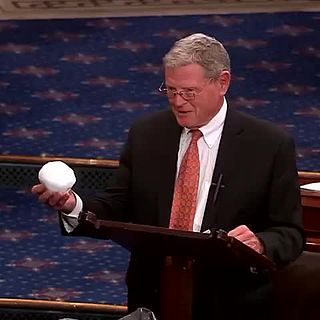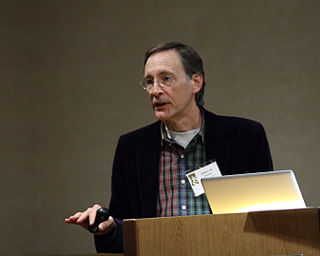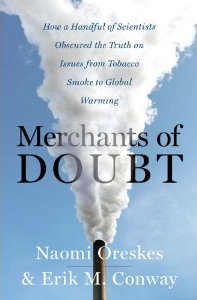
Social science is one of the branches of science, devoted to the study of societies and the relationships among individuals within those societies. The term was formerly used to refer to the field of sociology, the original "science of society", established in the 18th century. In addition to sociology, it now encompasses a wide array of academic disciplines, including anthropology, archaeology, economics, human geography, linguistics, management science, communication science, and political science.

Uncertainty or Incertitude refers to epistemic situations involving imperfect or unknown information. It applies to predictions of future events, to physical measurements that are already made, or to the unknown. Uncertainty arises in partially observable or stochastic environments, as well as due to ignorance, indolence, or both. It arises in any number of fields, including insurance, philosophy, physics, statistics, economics, finance, medicine, psychology, sociology, engineering, metrology, meteorology, ecology and information science.
Ignorance is a lack of knowledge or understanding. Deliberate ignorance is a culturally-induced phenomenon, the study of which is called agnotology.

Science studies is an interdisciplinary research area that seeks to situate scientific expertise in broad social, historical, and philosophical contexts. It uses various methods to analyze the production, representation and reception of scientific knowledge and its epistemic and semiotic role.

Science and technology studies (STS) or science, technology, and society is an interdisciplinary field that examines the creation, development, and consequences of science and technology in their historical, cultural, and social contexts.
Scientific consensus is the generally held judgment, position, and opinion of the majority or the supermajority of scientists in a particular field of study at any particular time.
The historiography of science or the historiography of the history of science is the study of the history and methodology of the sub-discipline of history, known as the history of science, including its disciplinary aspects and practices and the study of its own historical development.

The sociology of scientific knowledge (SSK) is the study of science as a social activity, especially dealing with "the social conditions and effects of science, and with the social structures and processes of scientific activity." The sociology of scientific ignorance (SSI) is complementary to the sociology of scientific knowledge. For comparison, the sociology of knowledge studies the impact of human knowledge and the prevailing ideas on societies and relations between knowledge and the social context within which it arises.
The science wars were a series of scholarly and public discussions in the 1990s over the social place of science in making authoritative claims about the world. Encyclopedia.com, citing the Encyclopedia of Science and Religion, describes the science wars as the

Harry Collins, FLSW, is a British sociologist of science at the School of Social Sciences, Cardiff University, Wales. In 2012 he was elected a Fellow of the British Academy. In 2013, he was elected a Fellow of the Learned Society of Wales.
Public awareness of science (PAwS) is everything relating to the awareness, attitudes, behaviors, opinions, and activities that comprise the relations between the general public or lay society as a whole to scientific knowledge and organization. This concept is also known as public understanding of science (PUS), or more recently, public engagement with science and technology (PEST). It is a comparatively new approach to the task of exploring the multitude of relations and linkages science, technology, and innovation have among the general public. While early work in the discipline focused on increasing or augmenting the public's knowledge of scientific topics, in line with the information deficit model of science communication, the deficit model has largely been abandoned by science communication researchers. Instead, there is an increasing emphasis on understanding how the public chooses to use scientific knowledge and on the development of interfaces to mediate between expert and lay understandings of an issue. Newer frameworks of communicating science include the dialogue and the participation models. The dialogue model aims to create spaces for conversations between scientists and non-scientists to occur while the participation model aims to include non-scientists in the process of science.

Science journalism conveys reporting about science to the public. The field typically involves interactions between scientists, journalists and the public.
In science studies, boundary-work comprises instances in which boundaries, demarcations, or other divisions between fields of knowledge are created, advocated, attacked, or reinforced. Such delineations often have high stakes involved for the participants, and carries with it the implication that such boundaries are flexible and socially constructed.

Within the sociology of knowledge, agnotology is the study of deliberate, culturally induced ignorance or doubt, typically to sell a product, influence opinion, or win favour, particularly through the publication of inaccurate or misleading scientific data (disinformation). More generally, the term includes the condition where more knowledge of a subject creates greater uncertainty.

Robert Neel Proctor is an American historian of science and Professor of the History of Science at Stanford University, where he is also Professor by courtesy of Pulmonary Medicine. While a professor of the history of science at Pennsylvania State University in 1999, he became the first historian to testify against the tobacco industry.

Science communication encompasses a wide range of activities that connect science and society. Common goals of science communication include informing non-experts about scientific findings, raising the public awareness of and interest in science, influencing people's attitudes and behaviors, informing public policy, and engaging with diverse communities to address societal problems. The term "science communication" generally refers to settings in which audiences are not experts on the scientific topic being discussed (outreach), though some authors categorize expert-to-expert communication as a type of science communication. Examples of outreach include science journalism and health communication. Since science has political, moral, and legal implications, science communication can help bridge gaps between different stakeholders in public policy, industry, and civil society.

Merchants of Doubt: How a Handful of Scientists Obscured the Truth on Issues from Tobacco Smoke to Global Warming is a 2010 non-fiction book by American historians of science Naomi Oreskes and Erik M. Conway. It identifies parallels between the global warming controversy and earlier controversies over tobacco smoking, acid rain, DDT, and the hole in the ozone layer. Oreskes and Conway write that in each case "keeping the controversy alive" by spreading doubt and confusion after a scientific consensus had been reached was the basic strategy of those opposing action. In particular, they show that Fred Seitz, Fred Singer, and a few other contrarian scientists joined forces with conservative think tanks and private corporations to challenge the scientific consensus on many contemporary issues.
The economics of science aims to understand the impact of science on the advance of technology, to explain the behavior of scientists, and to understand the efficiency or inefficiency of scientific institutions and science markets.
Matthias Gross is a German sociologist and science studies scholar. He currently is Full Professor of Environmental Sociology at the University of Jena, and by joint appointment, at Helmholtz Centre for Environmental Research – UFZ in Leipzig, Germany.
Scientific dissent is dissent from scientific consensus. Disagreements can be useful for finding problems in underlying assumptions, methodologies, and reasoning, as well as for generating and testing new ways of tackling the unknown. In modern times, with the increased role of science on the society and the politicization of science, a new aspect gained prominence: effects of scientific dissent on public policies.











